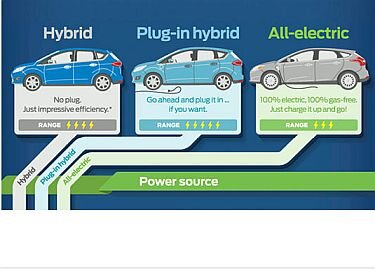Ripples! How each of us can have a bigger RE impact
Photo credit here.
I believe that more of us will become increasingly motivated to get engaged in the Energy Transition. For some, it might begin with picking up a best-selling book on a topic that’s hits close to home. Or maybe something on that podcast episode that a friend recommended resonates with you. Or you could get turned on by an authoritative expert that inspires you and decide to follow them on social media.
And during this discovery process, as all this information begins to sink in, you might become determined to join in the movement in a more active way by making changes in your own personal life. This kind of inspiration is happening all around us in other social movements like vegetarianism or racial inequality.
Make that change
The changes that are possible/feasible on an individual level are becoming more familiar, if not more obvious. If our collective goal is to reduce carbon emissions, we can look for alternatives to the conventional choices we make in our own immediate proximity. For example:
I’m including a reference to what is perhaps the least known option in this list. Read more about heat pumps here.
Trade in our gas-powered car for an electric vehicle (EV)
Swap out the gas-powered water heater in our home with an electric heat pump
Install solar panels on our rooftop to reduce our reliance on grid-provided power
There are more options of course, especially when you consider other appliances and machinery that could be powered by (clean) electricity. And then there is the broader range of topics around improving energy efficiency in the home, at work, etc.
But the sobering news is that this won’t really work – at least not the way I’m describing it here. Multiple studies have now shown that we are not going to reach zero greenhouse emissions with these kinds of individual heroics. Even collectively, if everyone “chipped in”, it wouldn’t solve the entire problem. And that’s because the Energy Transition must encompass more than just individual consumers and households. On my renewable energy path, I am learning all about the changes that will need to be made in industry, in agriculture, in the way we build cities, fly planes, make things….
That sounds discouraging!
Does that mean we don’t even try? Hardly! The way I see it, we don’t really have a choice. I do think we can positively contribute to the Energy Transition on an individual level, but that we think about it differently.
I would propose that we do all these things in the bullets above (and more!) but with a slightly different intent. Specifically, I would invite you to consider the ripple effect.
I was originally turned on to the core idea by a friend looking to purchase a plug-in hybrid but then latched onto the phrase “ripples” or ripple effect after listening to the episode of Gimlet Media’s How to Save a Planet podcast entitled “Is Your Carbon Footprint BS?”.
In the podcast, the hosts first reviewed the findings from one of these gloomy-sounding studies, then offered an alternative concept of thinking broader than your own immediate “footprint”. They argue, and I agree, that we can have a significantly larger impact by deliberately making conspicuous choices that stimulate or even inspire conversations with others.
Go stimulate conversations
If you consider how many opportunities you may have to engage with friends, colleagues and family members, you will appreciate your own sphere of influence. In the case of the friend I mentioned above, he is motivated to buy a plug-in hybrid for his own environmental and economic reasons but also because he knows it will stir up some (good?) controversy in his own social circles. And he wants to have those conversations if not to convert, then at least to better inform others.
In my own personal travels of late, I have come across similar opportunities. For example, while camping on an extended road trip, I relied on my portable solar panels to keep all my devices juiced up. But I was constantly surprised by how many people would stop by to strike up conversations about the panels. They were curious about how I used them for very practical purposes like charging my phone or laptop - problems they also experienced while camping.
Many people associate solar panels only with homes or office buildings and have not seen them used in this more mobile setting.
The portability of these panels was also universally appealing to all who were looking to maximize space while on the move. And many of my campground peers were most surprised to learn how inexpensive these kinds of solar panels are. At least 3 of my conversations ended with some intent to buy, which I found inspiring.
And the conversation doesn’t always have to be in the same direction, where you are the one demonstrating or promoting something novel. On another trip for example, I stopped to visit a friend who had recently moved, and I complimented him on the solar panels that were installed on his roof. Turns out, they were already there when he bought the house, and he hadn’t really thought much about it at the time. As we talked more, he recalled that his monthly electric bill was actually negative - he was selling clean energy back to the utility while also powering his new house from the abundant, renewable California sunshine!
I didn’t have to convert him or his family as they had already contributed to the cause (they also drive a hybrid car!). But his new appreciation for the small part he was playing in the larger transition to clean energy was inspiring to him.
Create more ripples
I will be looking for more of these opportunities to create these kinds of ripples, to use a small, personal choice as a way to spark curiosity and spur action for those around me. I hope you find opportunities to do the same.




